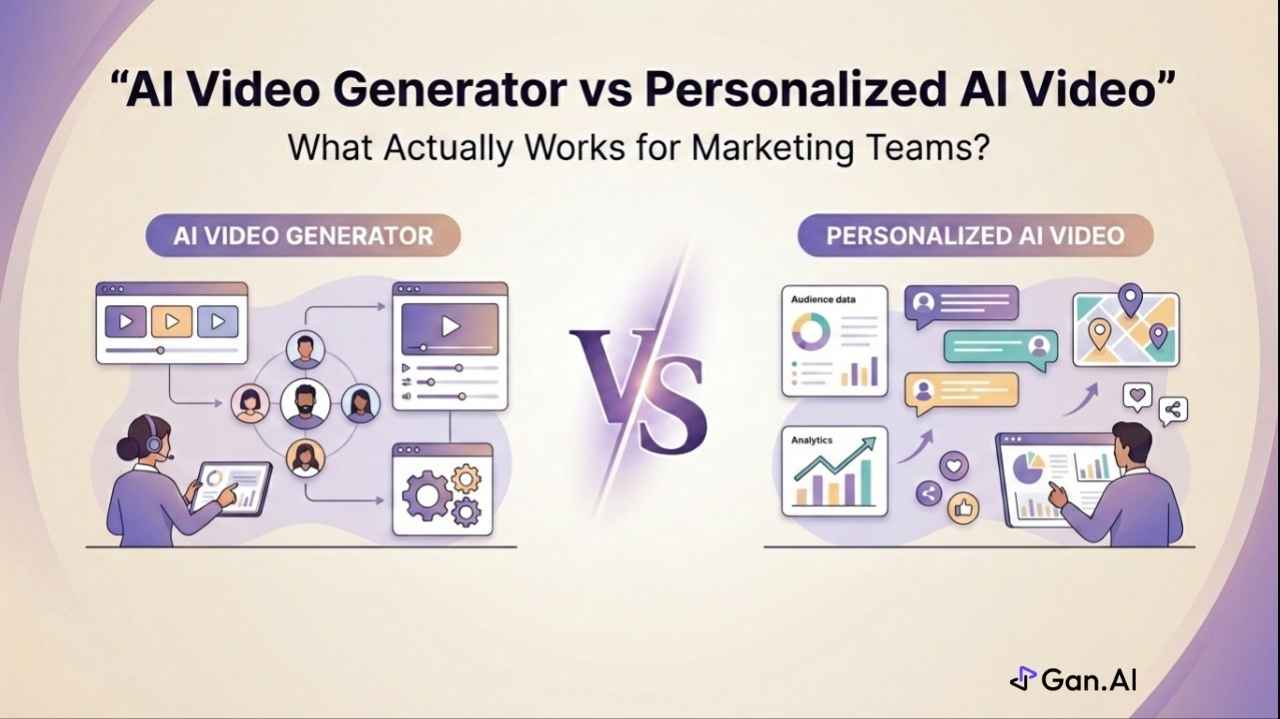The Power of Voice: How AI Is Rekindling Connections Lost to Silence
Do you remember the last time you laughed so hard that your stomach hurt? The kind of laughter where your voice cracks, and you lose your breath, and you don’t care because you’re part of a moment that’s just that perfect. Now, imagine standing in that same moment, watching it from behind a soundproof wall—unable to let out even the smallest chuckle, unable to share in that joy.
One day, your voice just isn’t there anymore. The words that made people smile, that comforted your loved ones, that shared your dreams and told your jokes—they vanish. For millions of people, losing their voice is like being locked inside yourself, where every word is a prisoner with no key in sight. The silence becomes a constant companion, a reminder of what’s lost, what’s slipping further away each day. It’s not just the absence of sound; it’s the absence of connection, of warmth, of the things that make us feel alive.
The Voice Isn't Just Noise
Our voices are messy. They crackle, they rise, they get shaky when we’re nervous or dip low when we’re serious. They are loud, stubborn, warm, and unmistakably ours. It’s the sound of your best friend telling you everything will be alright, or your partner laughing at your worst joke—these sounds live in our hearts, creating connections that words alone can’t sustain. Our voices are our fingerprints on the air, something uniquely ours that cannot be replicated by anyone else.
When technology stepped in to give back voices, it started with robots—plain, monotone stand-ins. Sure, these voices could say things, but they couldn’t mean things. The difference between "I love you" and “I love you” can’t be expressed through flat syllables alone. It’s in the quiver, the pause, the little imperfections that tell the real story. It’s in the way we hesitate when we’re scared or the way our voices break when we’re overwhelmed by love or pain. A voice isn’t just a sound; it’s an experience, an extension of who we are.
But AI—real AI—is changing everything. It’s recreating voices that aren’t perfect but are perfectly human. With the magic of machine learning, our messy, beautiful voices are coming back. It’s not about making sound; it’s about creating echoes of who we are—those moments of laughter, the whispers of comfort, the cracks in your voice when you cry. It’s about preserving the raw, unfiltered essence of being human.
A Father, A Story, A Miracle
Picture a father named Ramesh. Every night, he told his little girl a bedtime story. She would listen with her eyes wide open, lost in the magic of his voice. It was his voice that turned simple tales into grand adventures, that made dragons roar and princesses dream. Then one day, a cruel twist of fate took that voice away. Suddenly, those stories that once brought her dreams turned into a painful silence. It wasn’t just the stories that disappeared; it was the connection, the warmth of those shared moments that slipped away too.
But then, there was AI. It took the time to listen, to learn, to remember the way his voice rose when he got to the exciting parts, the way it softened when his daughter got sleepy. When Ramesh spoke again, it was his voice that told the stories, full of love and magic. His little girl looked up, eyes wide once more, as if a piece of her world had come back. It was more than just technology working—it was love finding a way back home. It was the return of the bedtime ritual, the reassurance that her father was still there, still him.
The first night Ramesh used his new voice, it was like the room filled with warmth again. His daughter snuggled closer, her eyes shining, and for the first time in a long while, they were together in the way they used to be. It wasn’t just about the words being spoken—it was about the way they were spoken, about the love and care that AI had managed to bring back into their lives. A miracle, wrapped in code and compassion, that made the impossible possible.
A New Era of Speech for Everyone
Losing one’s ability to speak—whether due to ALS, stroke, throat cancer, or other conditions—can be profoundly isolating. People rely on speech to connect with loved ones, engage socially, and express their emotions. A robotic voice might allow basic communication, but it fails to capture nuances like tone, warmth, or identity—things we take for granted in human conversation.
This is where AI-powered solutions like Myna-mini can come in. Unlike traditional text-to-speech (TTS) systems, Myna-mini can generate natural, conversational speech, trained on real-world data. It sounds not just realistic but deeply personal, filled with the warmth and uniqueness of the person they belong to.
More Than Language, More Than Words
In Mumbai, in Lagos, in São Paulo, voices are a mix of languages, a hybrid symphony of culture. “Bhaiya, ek coffee laa do, please?”—simple, raw, natural. It’s not just Hindi, not just English; it’s both, and it’s neither. It’s something real, something that reflects who we are in this tangled, multicultural world. It’s not just a sentence—it’s a piece of home, an expression of belonging. The ability to switch between languages seamlessly is something that defines millions of people, and it’s as much a part of their identity as their name.
Old speech machines couldn’t keep up. They didn’t know how to dance between languages, how to flow with the rhythm of real life. They were stiff, awkward, incapable of blending the colors of our words. Conversations felt forced, unnatural, lacking the vibrant fluidity of real human interaction. But AI has learned the dance. It understands that switching between languages isn’t an error—it’s an expression. It's the beat of someone’s story, the pulse of where they come from. The way we use language is how we navigate the world, how we communicate who we are—and now, finally, technology is catching up to that truth.
Speaking Naturally Again: How AI Changes Lives
Consider a scenario: Amit, a businessman and public speaker, lost his ability to speak after a devastating stroke. For someone whose life revolved around communication, this was shattering. At first, Amit tried traditional speech-generating devices, but the unnatural cadence and robotic intonation made him feel like an outsider in his own conversations.
That changed when Amit and his family discovered AI voice technology. With a few recordings of his past speeches, the AI’s voice-cloning capabilities replicated Amit’s original voice—down to the intonations and pauses that were uniquely his. Now, when Amit speaks through his device, he sounds like himself again.
For the first time since his stroke, Amit was able to call his daughter and say, “Happy birthday, beta. I love you,” in a voice she recognized as his. No longer was he limited to clinical-sounding phrases. His new voice was expressive, warm, and deeply personal.
This Is Not Just Tech, This Is Humanity
It’s easy to talk about AI as if it’s only science, as if it’s all about algorithms and data. But in truth, AI is becoming a bridge—one that reaches across the silence that divides people from their world. It’s giving people the tools to say, “I am still here. I still matter.” It’s giving people back the ability to be part of the moments that matter—to share in the jokes, the tears, the everyday magic of life.
Think of what it means to make a phone call after years of silence. To have your best friend pick up and hear you. To hear them laugh, knowing they recognize the laughter that follows. Imagine walking into your favorite café and ordering your usual in a voice that carries all your quirks, your warmth—not some cold, mechanical echo, but a voice filled with life. It’s about reclaiming a place in the world, about being more than just present—about being felt.
The beauty of this technology is that it’s turning something so stark and final—the loss of speech—into a story of resilience. It’s transforming what we thought was the end into a new beginning. For every lost voice, there is now a chance to be heard again, not just through words, but through the emotions, the culture, and the spirit that words can’t carry alone. It’s about giving people the chance to be part of the world again, not as an outsider but as themselves—unfiltered, raw, and real.
Voices That Never Stop Speaking
Our voices carry more than our words—they carry our essence. They are laughter, they are tears, they are love and anger and everything we are in between. Losing that doesn’t have to mean losing you. AI is making sure that even if illness or fate tries to take it away, your voice is something that can be found again, something that will continue to speak, echo, and live on.
Here’s to the voices that refuse to be silenced, to the stories that will keep being told, and to the people who, no matter what, will always find a way to be heard. Here’s to technology that isn’t just smart—it’s kind. Here’s to a future where nobody is left voiceless, where every whisper, every laugh, every song is heard, cherished, and never forgotten. Because our voices are not just sounds; they are who we are, and they deserve to be heard forever.
.avif)


%201.svg)




%20(1).png)










